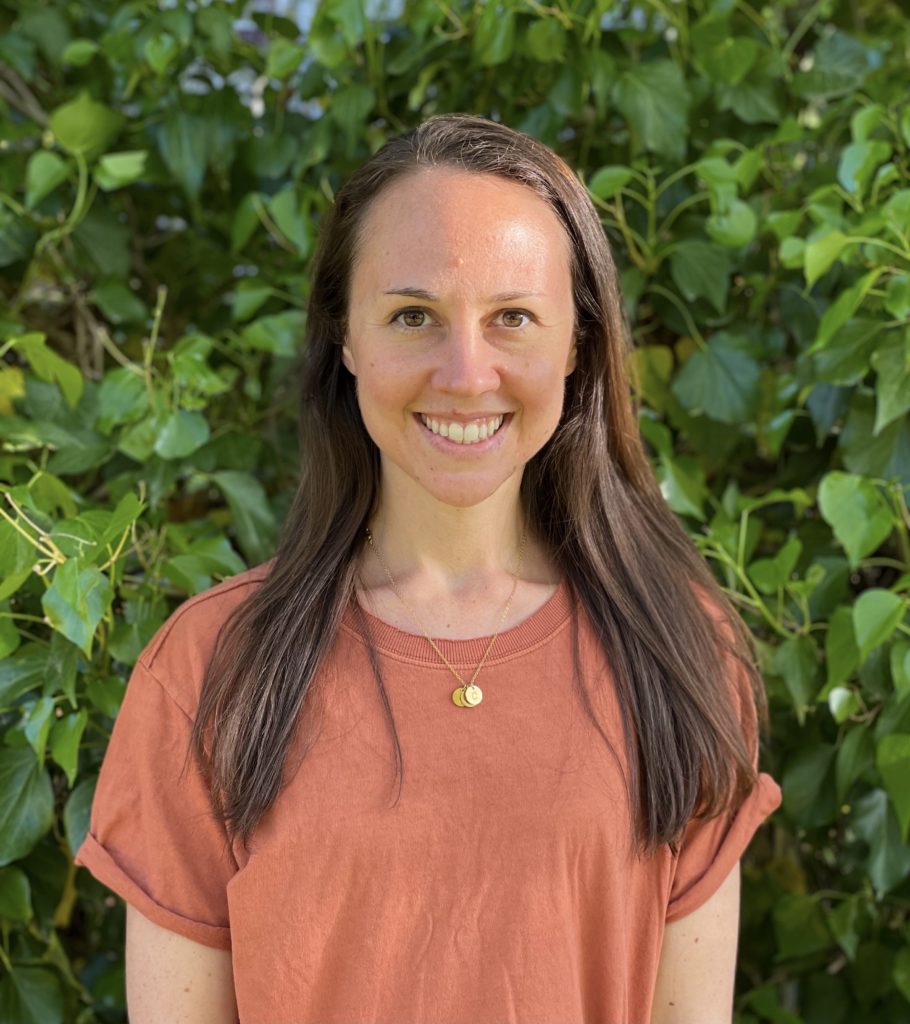
My counselor sits across from me in a green wingback chair, her eyes wide and kind behind black cat eyeglasses. Instead of meeting her gaze, I steal glances at the bowl of brittle potpourri to my left. The too-squishy couch feels lopsided beneath me, as unmanageable as my emotions. I’ve spent years trying not to cry in front of other people, and now my counselor is practically begging me to do it, with her understanding smile and inviting silences.
“You’re grieving,” she tells me gently. “Give yourself permission to grieve.”
“Grieve what?” I choke out from behind suppressed sobs. I have a husband who loves me, amazing friends, and a great job. Do I have the right to be grieving?
Another inviting silence.
***
Two years earlier I sat in a very different office, one that smelled not of potpourri but of rubbing alcohol and latex.
“Miscarriages are extremely common,” my doctor stoically informed me as I sat in an unforgiving vinyl chair under harsh fluorescent lights. I could feel the cortisol pulsing beneath my skin.
“You’re young,” he continued. “You can just try again next month.” I left the appointment in angry tears, furiously Googling different OB/GYN practices as soon as I returned to the safety of my car.
My positive pregnancy test was the only proof that this little life had been real, if only for a few weeks. I saw my friends with their burgeoning bellies, pregnancy tracking apps, and baby registries—those were the real moms with the real babies. Mine had slipped through my fingers like sand in an hourglass, and no amount of grasping could make it come back.
Negative pregnancy tests began piling up, one after the other, a line of dominoes in a game I was playing alone. Each one began as a symbol of possibility and ended as confirmation that my body was, as I feared, broken. Eventually, I stopped taking pregnancy tests altogether—they became a waste of both money and hope. My hope had been drained to the dregs, and I hoarded every precious drop that remained.
I became utterly convinced that our baby was just one lifestyle change away. I started seeing a naturopath in a light-filled office downtown, surrounded by lush green potted plants and rows of overpriced supplements. My naturopath joined the chorus of medical professionals reminding me of my youth as if this were somehow a guarantee to getting pregnant. She recommended a few diet changes along with a complex daily regimen of supplements and sent me on my way.
“I bet you’ll be pregnant before you know it,” she chirped.
Around that same time, my (new) OB/GYN started me on hCG shots, which my husband dutifully administered at night. I felt the sharp sting of the needle but knew it was nothing compared to the pain of longing for a baby—a deep and primal ache, a cavernous void of the heart which threatened to consume me.
My faith, which I thought was built on solid rock, was revealed instead to be precariously set on the sinking sand of life circumstances. When I tried to sing along to the worship music at church, my tongue wouldn’t cooperate, as if I were commanding it to speak a foreign language. I sought answers to my faith questions, but deep down, all I wanted was a baby. Somewhere along the way, I reduced a loving God to a cosmic vending machine. In some strange way, I took solace in the fact that I at least had Someone to blame for my misery.
***
During our second year of trying to conceive, my husband and I went to see a fertility specialist. We joined the many other couples sitting in that waiting room, watching HGTV and hoping for new life.
“You’re young,” was the battle cry we heard once again from our doctors. “You have plenty of time!” My husband and I each underwent months’ worth of testing before being labeled with that dreaded mystery diagnosis: unexplained infertility. How ironic that the one time I was praying for a problem, there was none to be found. The doctors put me on a medication designed to increase the number of eggs that were ovulated during each cycle.
“You’ll be pregnant before you know it,” they told me confidently, a phrase that was now starting to ring hollow. I swallowed my prescribed poison on the designated days, but nothing happened aside from feeling an uncomfortable ache in my abdomen.
After a few months of taking the medication with no results, we did one IUI procedure. It was right before a family beach trip, and I hoped the vacation would be a welcome reprieve from obsessing over pregnancy. Instead, I spent each day studiously avoiding hot tubs and examining my bathing-suit-clad belly from every angle—was I showing yet? Two weeks later, I stood numbly in the grocery store checkout line with a box of tampons in my hand.
I refused to return to the fertility clinic. Maybe other people’s hearts were made of some indestructible material that allowed them to walk back through those doors after a failed treatment, but mine was not.
My desire for a child reached a fever pitch. I heard stories of people getting pregnant on accident—as if it were a car crash that happened when they took their eyes off the road for just a second too long—and was filled with a raging kind of jealousy. I saw pregnant women in line at the grocery store and shamelessly eyed their carts, wondering what they were eating to make themselves so fertile. I attended friends’ baby showers and sobbed in the car on the way home. While I genuinely desired to feel happy for my pregnant friends, my heart was so full of grief that there was little room left for sharing in the joy of others.
Each pregnancy announcement felt like a proclamation that children were for everyone but me. Motherhood seemed just out of my reach, a carrot dangling on a string. I vowed to double down on my efforts and work as hard as I possibly could to get pregnant. If gaining a child meant losing my soul, that was a trade I was now willing to accept.
I logged countless hours of independent research on our laptop, turning our home into a doctor’s office all my own. I quickly discovered the missing piece of our fertility journey: Brazil nuts. They contained selenium, an important ingredient for growing babies, apparently. Selenium! It had been there all along, right under our noses! I excitedly came home from Trader Joe’s with a $10 bag of Brazil nuts and prescribed my husband one handful per day. In an attempt to bring some humor to my insanity, he remarked that we could have saved thousands at the fertility clinic had we only known about the magical powers of Brazil nuts. I was not amused.
It only took a few more internet searches before my daily cup of coffee became the next obstacle standing in the way of pregnancy. I mostly gave it up, but still wanted to treat myself every now and then. I would measure out coffee grounds into my French press, feeling guilty as I let it brew and poured the creamer into a mug.
I slowly erased so many sources of joy from my life over the years, believing that I could punish myself into becoming worthy of pregnancy. I prayed often for guidance, but all the feeling had seeped out of my prayers, leaving them as empty as my womb.
***
Together my husband and I reached a heartbreaking yet necessary conclusion: it was time to take baby-making off the agenda. We had given everything we had to create this child and were left spiritually, mentally, and emotionally depleted.
God is light, and in Him there is no darkness at all, I reminded myself constantly. I wrote this verse on yellow Post-Its, in journals, on napkins. I gave myself permission to grieve the family I thought I would have by now, and in doing so I realized something: the grief was moving through me, making room for a sliver of hope.
That year, instead of intensifying our baby efforts, we booked a trip to California to escape the January cold. Our plane flew out of the Charlotte Douglas airport under gray skies and freezing rain, destined for sunny San Diego. We drove to our Airbnb under the glow of a full moon, set like a sumptuous pearl against the velvet jewel box of the night sky.
In California, I was surrounded by beauty that I did not earn. Everywhere I looked I saw signs of life—pink azaleas spilling over wooden fences, seals popping up for air in La Jolla cove, mothers carrying babies along the Torrey Pines trail. I kayaked through turquoise waters and felt both grief and hope welling up within me.
One morning on our trip, I woke up before my husband and ventured out into the cool, quiet stillness alone. I bought a coffee from a nearby bakery, making small talk with the tired cashier. I strolled around with the warm cup in my hand and savored each sip. The sun brightened the morning sky while I walked leisurely down the concrete sidewalk of Mission Boulevard, palm trees waving like a banner over me.
I imagined my journey towards motherhood as a path, winding, and twisting. Perhaps this path included pregnancy, or adoption, or something else I hadn’t even considered yet. This much was clear to me, though: if our children ever decided to walk down this path to meet me, I would be there with arms wide open, ready to receive.

Megan lives in North Carolina with her husband and their two sons, one of whom came to them through foster care. She is a writer, a reader, and a believer with more questions than answers. You can find Megan online at her blog, A Continual Feast, or on Instagram at @megandhogg.
[…] Click here to read the rest of my essay, Giving and Receiving, on She is Kindred. […]